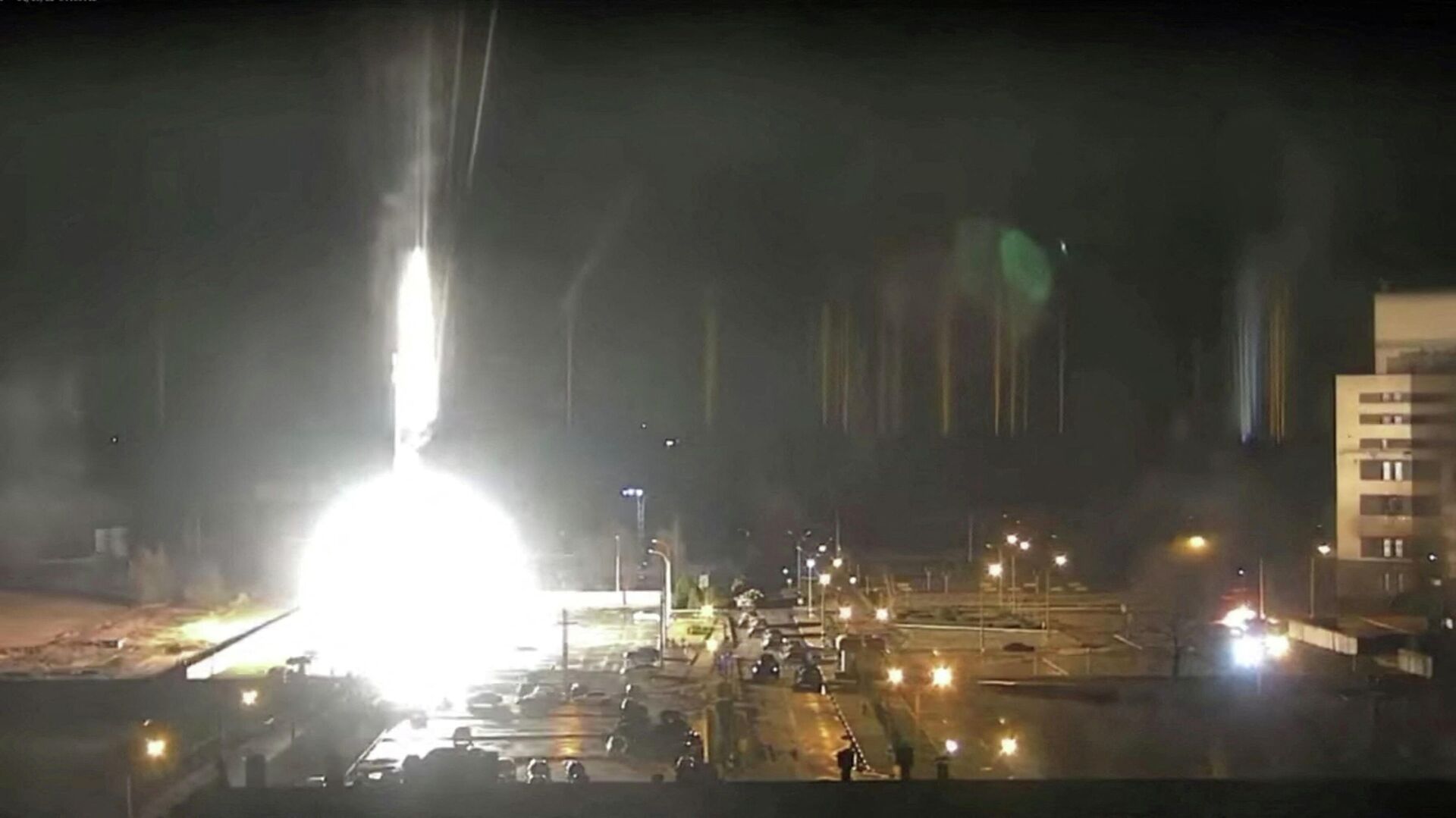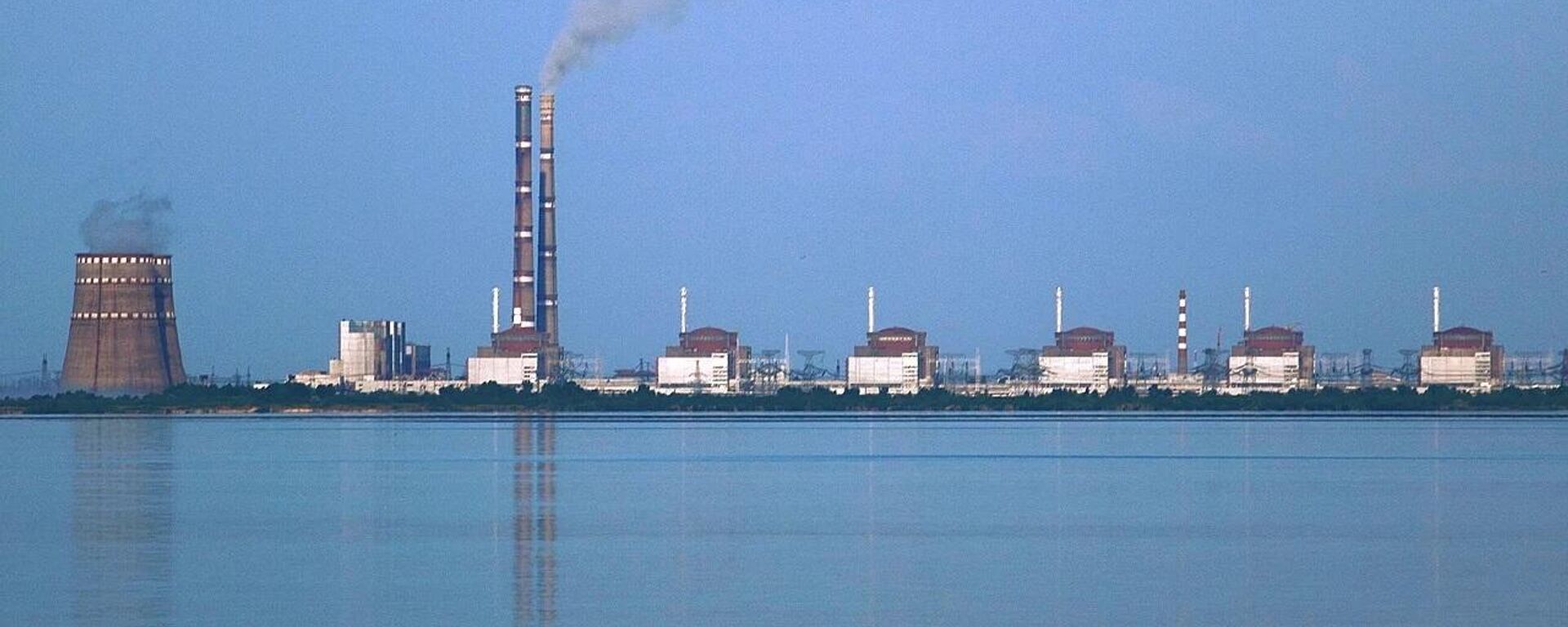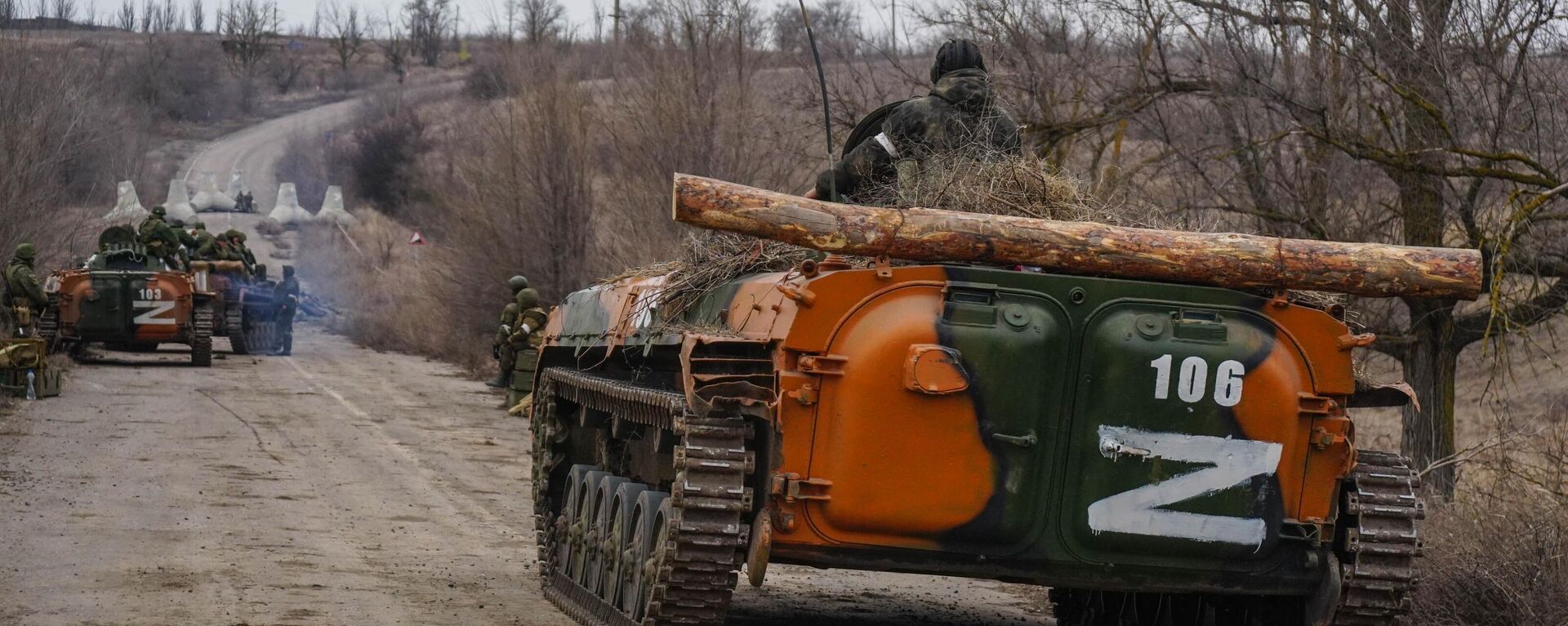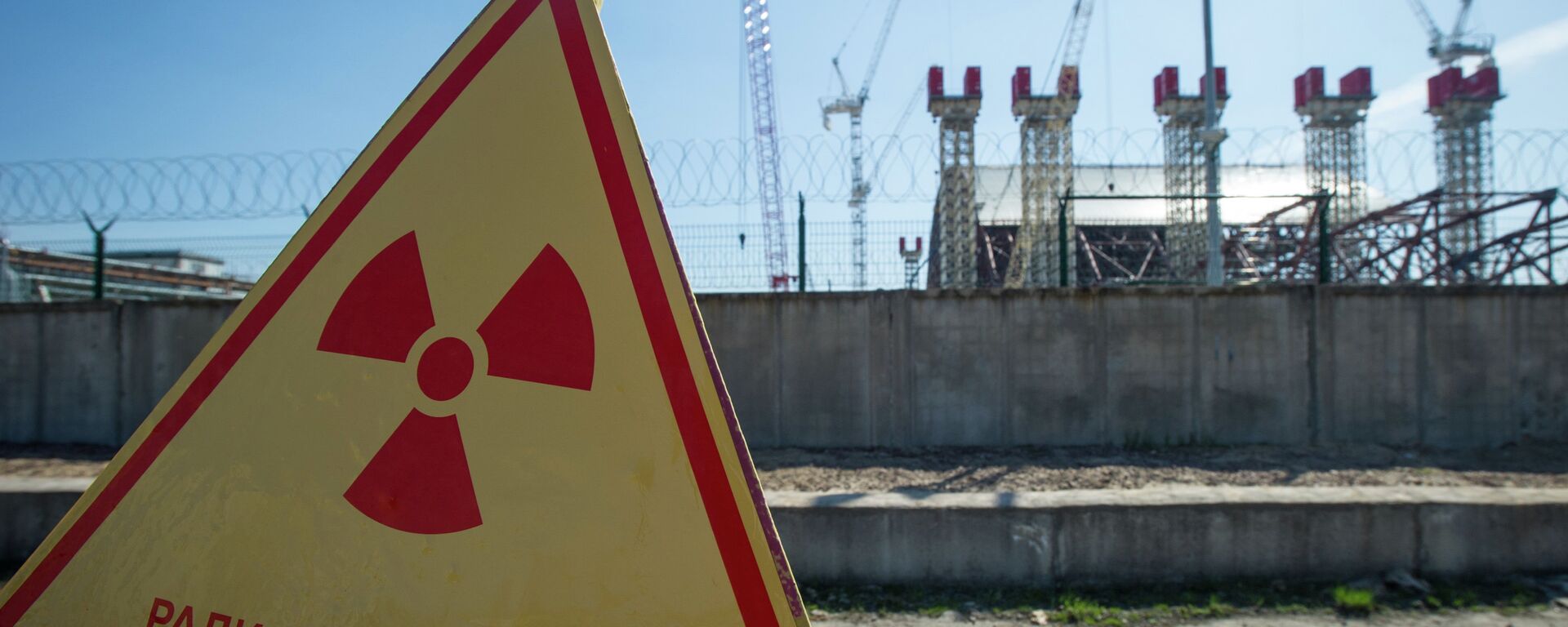https://sputnikglobe.com/20220306/putin-tells-macron-about-attempted-provocation-around-nuclear-power-plant-by-ukrainian-radicals-1093636233.html
Ukrainian Radicals Sought to Frame Russia for Provocation at Nuclear Power Plant, Putin Tells Macron
Ukrainian Radicals Sought to Frame Russia for Provocation at Nuclear Power Plant, Putin Tells Macron
Sputnik International
The Zaporozhye nuclear power plant - the largest NPP in Europe, suffered a scare early Friday after clashes erupted in its immediate vicinity. Western media... 06.03.2022, Sputnik International
2022-03-06T13:58+0000
2022-03-06T13:58+0000
2022-03-06T17:25+0000
ukraine
russia
france
emmanuel macron
vladimir putin
russia's special operation in ukraine
https://cdn1.img.sputnikglobe.com/img/07e6/03/04/1093571875_0:0:3581:2014_1920x0_80_0_0_8ff87faa1b649f2f1cff77730a685caf.jpg
Russian President Vladimir Putin has provided his French counterpart Emmanuel Macron details about the attempted provocation by Ukrainian radical formations around the Zaporozhye nuclear power plant.The Kremlin assured that the physical safety of the nuclear power plant has been secured, and that Russian forces and Ukrainian security personnel are coordinating its protection.The Kremlin further reiterated that the mothballed Chernobyl nuclear power plant north of Kiev was also under Russia's control. "All this has been done to exclude the possibility of provocations by Ukrainian neo-Nazis or terrorists fraught with catastrophic consequences," the readout said.On Saturday, Paris proposed a series of steps to safeguard Chernobyl, as well as Ukraine's four active nuclear power plants, in connection with the ongoing crisis and Russian military operation in that country. The International Atomic Energy Agency proposed a trilateral meeting in Chernobyl including IAEA, Russian and Ukrainian officials to ensure these facilities' safety.In his call with President Macron on Sunday, President Putin said that this idea was useful in principle, but that it might be preferable to hold it in the format of a videoconference or in a third nation.The Russian military announced that it had taken control of the Zaporozhye nuclear power plant on 28 February. Local authorities denied that the plant had been lost, and on 4 March accused Russian forces of damaging buildings near the facility in artillery strikes. The Russian defence ministry dismissed these allegations and accused "the Kiev regime" of "attempt[ing] to implement a monstrous provocation" to spark a nuclear disaster. The MoD accused Ukrainian saboteurs of attacking a Russian national guard patrol from a building in an area adjacent to the plant. The guardsmen were said to have responded with small arms fire, with the saboteurs leaving the building they had occupied and setting it on fire. Firefighters arrived shortly after to put the fire out.On Saturday, former Ukrainian Prime Minister Nikolai Azarov accused President Volodymyr Zelensky of attempting to use what he suggested was a "planned provocation" at the power plant to force the West to impose a no-fly zone over Ukraine. "No sane Russian or Ukrainian serviceman would have dared to endanger one of the biggest nuclear power plants in Europe, which has six reactors," Azarov insisted.The IAEA said Sunday that it has been informed by Kiev that the Zaporozhye NPP has been under the control of Russian forces since last week, and that the plant's management was now operating under the authority of the Russian commander. The plant is operating in three shifts, but staff have faced problems with the supply of food, negatively impacting morale, the agency said. Ukraine's nuclear regulator has also reported problems communicating with the Zaporozhye plant and with Chernobyl, according to the IAEA.In addition to the Zaporozhye NPP and Chernobyl, Ukraine has nuclear power plants in the western regions of Rivne and Khmelnytskyi, and another in the country's southwest. All of these facilities were designed during the Soviet era, and Ukrainian nuclear industry workers have spent years sounding the alarm about the dangers of "another Chernobyl" style meltdown, citing lack of safety inspections and a critical shortage of cash to ensure the continued safe operation of plants. Others have expressed concerns about Ukraine's decision to shift to the use of Westinghouse nuclear fuel rods in place of those provided by Russia's Rosatom, with the former feared to be so incompatible with Ukraine's Soviet-designed plants that rods initially literally didn't fit into the reactors.
https://sputnikglobe.com/20220304/paris-will-put-forward-measures-to-safeguard-5-ukrainian-nuclear-facilities-1093600324.html
https://sputnikglobe.com/20220305/live-updates-dpr-forces-face-fire-from-nationalist-battalions-after-entering-mariupol---russian-mod-1093605721.html
https://sputnikglobe.com/20200410/ukrainian-nuclear-industry-workers-sound-alarm-about-threat-of-another-chernobyl-1078906091.html
ukraine
france
Sputnik International
feedback@sputniknews.com
+74956456601
MIA „Rossiya Segodnya“
2022
News
en_EN
Sputnik International
feedback@sputniknews.com
+74956456601
MIA „Rossiya Segodnya“
Sputnik International
feedback@sputniknews.com
+74956456601
MIA „Rossiya Segodnya“
ukraine, france, emmanuel macron, vladimir putin
ukraine, france, emmanuel macron, vladimir putin
Ukrainian Radicals Sought to Frame Russia for Provocation at Nuclear Power Plant, Putin Tells Macron
13:58 GMT 06.03.2022 (Updated: 17:25 GMT 06.03.2022) The Zaporozhye nuclear power plant - the largest NPP in Europe, suffered a scare early Friday after clashes erupted in its immediate vicinity. Western media claimed Russian forces deliberately targeted the facility with artillery. The Russian MoD dismissed the claims and accused Ukrainian authorities of attempting a "monstrous provocation."
Russian President Vladimir Putin has provided his French counterpart Emmanuel Macron details about the attempted provocation by Ukrainian radical formations around the Zaporozhye nuclear power plant.
"In connection with concerns expressed by Emmanuel Macron about ensuring the safety of nuclear power plants on the territory of Ukraine, Vladimir Putin informed him in detail about the provocation organized by Ukrainian radicals in the area of the Zaporozhye nuclear power plant involving a sabotage group," a Kremlin readout released Sunday after a phone call between the Russian and French leaders said.
The Kremlin assured that the physical safety of the nuclear power plant has been secured, and that Russian forces and Ukrainian security personnel are coordinating its protection.
"Attempts to shift responsibility for this incident to the Russian military are an element of a cynical propaganda campaign. Russian troops, in cooperation with Ukrainian security forces and plant personnel, are continuing to assure the operation of the nuclear power plant in normal mode; background radiation remains at normal levels. All of these facts have been officially confirmed by the IAEA. The physical and nuclear safety of the station is under reliable protection," the readout said.
The Kremlin further reiterated that the mothballed Chernobyl nuclear power plant north of Kiev was also under Russia's control. "All this has been done to exclude the possibility of provocations by Ukrainian neo-Nazis or terrorists fraught with catastrophic consequences," the readout said.
On Saturday, Paris
proposed a series of steps to safeguard Chernobyl, as well as Ukraine's four active nuclear power plants, in connection with the ongoing crisis and Russian military operation in that country. The International Atomic Energy Agency proposed a trilateral meeting in Chernobyl including IAEA, Russian and Ukrainian officials to ensure these facilities' safety.
In his call with President Macron on Sunday, President Putin said that this idea was useful in principle, but that it might be preferable to hold it in the format of a videoconference or in a third nation.
The Russian military announced that it had taken control of the Zaporozhye nuclear power plant on 28 February. Local authorities denied that the plant had been lost, and on 4 March accused Russian forces of damaging buildings near the facility in artillery strikes. The Russian defence ministry
dismissed these allegations and accused "the Kiev regime" of "attempt[ing] to implement a monstrous provocation" to spark a nuclear disaster. The MoD accused Ukrainian saboteurs of attacking a Russian national guard patrol from a building in an area adjacent to the plant. The guardsmen were said to have responded with small arms fire, with the saboteurs leaving the building they had occupied and setting it on fire. Firefighters arrived shortly after to put the fire out.
On Saturday, former Ukrainian Prime Minister Nikolai Azarov
accused President Volodymyr Zelensky of attempting to use what he suggested was a "planned provocation" at the power plant to force the West to impose a no-fly zone over Ukraine. "No sane Russian or Ukrainian serviceman would have dared to endanger one of the biggest nuclear power plants in Europe, which has six reactors," Azarov insisted.
The IAEA said Sunday that it has been informed by Kiev that the Zaporozhye NPP has been under the control of Russian forces since last week, and that the plant's management was now operating under the authority of the Russian commander. The plant is operating in three shifts, but staff have faced problems with the supply of food, negatively impacting morale, the agency said. Ukraine's nuclear regulator has also reported problems communicating with the Zaporozhye plant and with Chernobyl, according to the IAEA.
In addition to the Zaporozhye NPP and Chernobyl, Ukraine has nuclear power plants in the western regions of Rivne and Khmelnytskyi, and another in the country's southwest. All of these facilities were designed during the Soviet era, and Ukrainian nuclear industry workers
have spent years sounding the alarm about the dangers of "another Chernobyl" style meltdown, citing lack of safety inspections and a critical shortage of cash to ensure the continued safe operation of plants. Others have expressed concerns about Ukraine's decision to shift to the use of Westinghouse nuclear fuel rods in place of those provided by Russia's Rosatom, with the former feared to be so incompatible with Ukraine's Soviet-designed plants that rods
initially literally didn't fit into the reactors.





